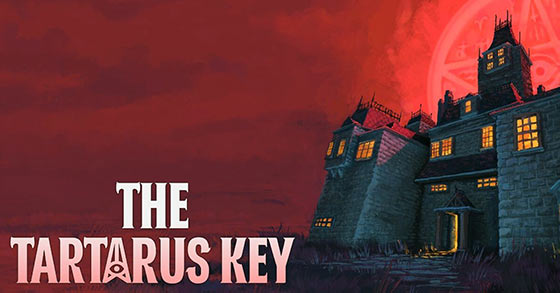
The Edge of Your Seat: Exploring the Thrilling World of Adventure Games
Adventure games have always held a special place in the gaming landscape, offering immersive storytelling, intricate puzzles, and a sense of exploration that few other genres can match. But when you inject a healthy dose of suspense, danger, and mystery, you elevate the experience to a heart-pounding realm of thriller adventure games. These games are not just about solving puzzles; they’re about survival, unraveling conspiracies, and confronting your deepest fears. They’re a roller coaster of emotions, designed to keep you on the edge of your seat from start to finish.
This article delves into the fascinating world of thriller adventure games, exploring their key characteristics, highlighting iconic titles that have defined the genre, and discussing the evolving trends that continue to shape its future.
Defining the Thrill: Key Elements of the Genre
What separates a thriller adventure game from its more laid-back counterparts? It boils down to a potent combination of several key elements:
-
Suspenseful Narrative: At the heart of every great thriller adventure game lies a gripping narrative, often built around a central mystery, a looming threat, or a high-stakes situation. The story unfolds gradually, revealing clues and twists that keep players guessing and invested in the outcome. Think of uncovering a hidden killer’s identity, preventing a global catastrophe, or escaping a terrifying, inescapable prison.
-
High Stakes and Danger: Thriller adventure games frequently place players in precarious situations where failure carries significant consequences. This could range from physical harm and death to the collapse of society or the destruction of everything the protagonist holds dear. The constant threat of danger adds a layer of urgency and tension to every decision the player makes.
-
Intriguing and Complex Characters: Well-developed characters are crucial for immersing players in the narrative. Thriller adventure games often feature protagonists with complex motivations, flawed personalities, and compelling backstories. They might be detectives haunted by past failures, ordinary people thrust into extraordinary circumstances, or even morally ambiguous figures forced to make difficult choices. Antagonists are equally important, often exhibiting chilling intelligence, ruthless determination, or a disturbing lack of empathy.
-
Atmospheric Setting: The environment plays a significant role in creating a sense of unease and tension. Thriller adventure games often utilize unsettling locations, such as abandoned asylums, desolate landscapes, or claustrophobic spaces, to heighten the feeling of dread. Sound design is equally important, with eerie music, unsettling ambient noises, and realistic sound effects contributing to the overall atmosphere of fear.
-
Challenging Puzzles with Real-World Consequences: While puzzles are a staple of the adventure game genre, in thriller titles, they are often interwoven with the narrative in a way that amplifies the tension. Solving a puzzle might be the only way to escape a deadly trap, uncover a crucial piece of evidence, or save a character from harm. This connection between puzzles and consequences adds weight to every action and makes the player feel directly responsible for the outcome.
-
Psychological Tension and Moral Dilemmas: Beyond physical threats, thriller adventure games often explore psychological themes, delving into the protagonist’s fears, anxieties, and moral conflicts. Players might be forced to make difficult choices that challenge their values and beliefs, leading to internal struggles and a deeper understanding of the character’s psyche.
Iconic Titles that Defined the Genre
Over the years, several games have stood out as shining examples of the thriller adventure genre, setting benchmarks for storytelling, atmosphere, and gameplay:
-
Gabriel Knight: Sins of the Fathers (1993): This classic adventure game blended voodoo lore with a gripping murder mystery, placing players in the shoes of Gabriel Knight, a bookstore owner and aspiring writer who investigates a series of ritualistic killings in New Orleans. The game’s mature themes, complex characters, and haunting atmosphere set it apart from other adventure games of its time.
-
Sanitarium (1998): This psychological horror adventure game takes players on a disturbing journey through the fractured mind of an amnesiac protagonist trapped in a bizarre asylum. As the player explores the asylum and interacts with its unsettling inhabitants, they must piece together the protagonist’s fragmented memories and uncover the truth behind his confinement. Sanitarium’s surreal visuals, nightmarish atmosphere, and thought-provoking themes made it a cult classic.
-
Silent Hill 2 (2001): While technically a survival horror game, Silent Hill 2’s emphasis on psychological horror, atmospheric exploration, and puzzle-solving makes it a significant influence on the thriller adventure genre. The game follows James Sunderland as he travels to the haunted town of Silent Hill in response to a letter from his deceased wife. As he explores the town and confronts its monstrous inhabitants, James is forced to confront his own guilt, grief, and inner demons.
-
Fahrenheit (Indigo Prophecy) (2005): This innovative game pioneered the use of quick-time events and branching narratives, allowing players to make choices that directly impact the story’s outcome. The game follows several characters as they investigate a series of ritualistic murders in New York City, uncovering a conspiracy that threatens to destroy the world. Fahrenheit’s cinematic presentation, engaging characters, and branching narrative made it a groundbreaking title.
-
Heavy Rain (2010): This interactive drama pushed the boundaries of storytelling in video games, allowing players to control multiple characters as they investigate the case of the Origami Killer. The game’s focus on player choice and emotional storytelling, combined with its suspenseful plot and realistic visuals, created a deeply immersive and emotionally resonant experience.
-
The Walking Dead: Season One (2012): Telltale Games revitalized the adventure game genre with this episodic series, which focused on character development, moral choices, and emotional storytelling. The game follows Lee Everett, a convicted criminal who becomes the protector of a young girl named Clementine during a zombie apocalypse. The Walking Dead’s emphasis on character relationships and difficult choices made it a critical and commercial success.
Evolving Trends and the Future of Thriller Adventure Games
The thriller adventure genre continues to evolve, with developers exploring new technologies, gameplay mechanics, and storytelling techniques to create even more immersive and engaging experiences:
-
Increased Focus on Narrative Choice and Consequences: Games like Life is Strange and Detroit: Become Human have demonstrated the power of branching narratives and player choice in shaping the story’s outcome. This trend is likely to continue, with developers creating more complex and nuanced narratives that respond to player decisions in meaningful ways.
-
Integration of Virtual Reality (VR): VR technology has the potential to significantly enhance the immersion and tension of thriller adventure games. Games like Resident Evil 7: Biohazard (in VR mode) and The Invisible Hours have shown how VR can amplify the feeling of dread and isolation, creating a truly terrifying experience.
-
Hybridization with Other Genres: Developers are increasingly blending elements of thriller adventure games with other genres, such as survival horror, stealth, and action, to create unique and innovative gameplay experiences. Games like Alan Wake and Control successfully blend thriller elements with action-oriented gameplay.
-
Emphasis on Psychological Horror and Unreliable Narrators: Games like Layers of Fear and Observer are exploring the psychological aspects of fear and paranoia, using unreliable narrators and distorted realities to create a sense of unease and disorientation.
-
Indie Innovation: Indie developers are playing a crucial role in pushing the boundaries of the thriller adventure genre, experimenting with unconventional storytelling techniques, unique visual styles, and innovative gameplay mechanics. Games like Return of the Obra Dinn and Disco Elysium demonstrate the creativity and originality that can be found in the indie scene.
Conclusion: The Enduring Appeal of a Thrilling Adventure
Thriller adventure games offer a unique and compelling form of entertainment, providing players with a chance to immerse themselves in gripping narratives, confront their fears, and make choices that have real consequences. From classic titles like Gabriel Knight and Sanitarium to modern masterpieces like Heavy Rain and The Walking Dead, the genre has consistently delivered unforgettable experiences that have captivated audiences for decades. As technology continues to evolve and developers continue to innovate, the future of thriller adventure games looks brighter than ever, promising even more suspenseful, immersive, and emotionally resonant experiences for players to enjoy. So, buckle up, prepare to be challenged, and get ready to embark on a thrilling adventure that will stay with you long after the credits roll. The edge of your seat is waiting.

